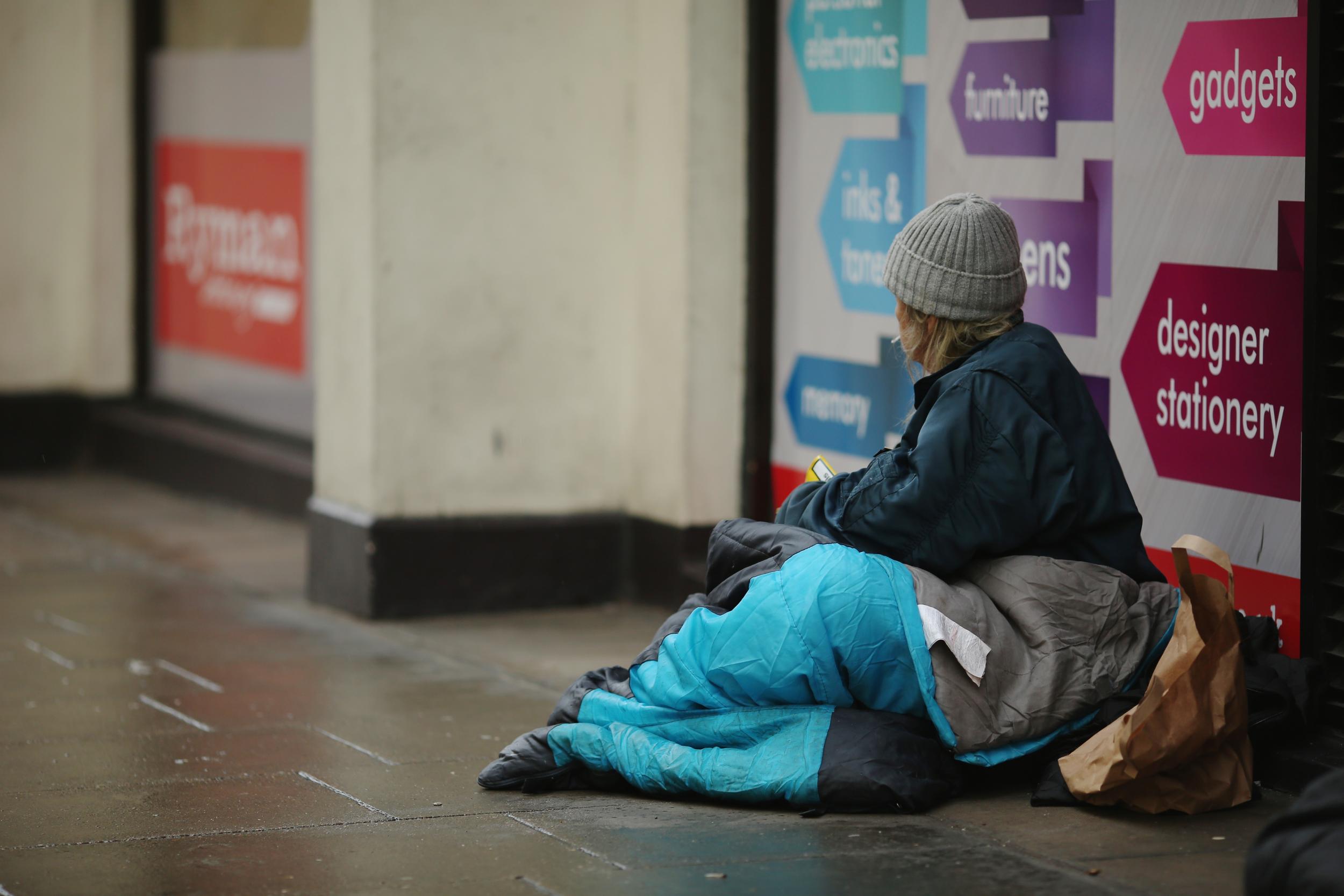What to do if you see a homeless person sleeping rough on the streets
Homelessness has risen by 102 per cent since 2010

Your support helps us to tell the story
From reproductive rights to climate change to Big Tech, The Independent is on the ground when the story is developing. Whether it's investigating the financials of Elon Musk's pro-Trump PAC or producing our latest documentary, 'The A Word', which shines a light on the American women fighting for reproductive rights, we know how important it is to parse out the facts from the messaging.
At such a critical moment in US history, we need reporters on the ground. Your donation allows us to keep sending journalists to speak to both sides of the story.
The Independent is trusted by Americans across the entire political spectrum. And unlike many other quality news outlets, we choose not to lock Americans out of our reporting and analysis with paywalls. We believe quality journalism should be available to everyone, paid for by those who can afford it.
Your support makes all the difference.With temperatures now dropping down to single figures overnight in the UK, the challenges for people sleeping rough begin to intensify.
Homelessness in England has risen by a third in the past year, with 3,569 people estimated to have been sleeping rough on any one night of 2015, figures from the communities department revealed earlier this year. Overall, homelessness has risen by 102 per cent since 2010, the figures showed.
Petra Salva, director of the rough sleeping services at homeless charity St Mungo’s, says that people are already in an urgent condition if they are sleeping rough, but when the weather turns colder, the risk to people’s lives increases.
“It is already harmful and dangerous to sleep on the streets. It means a person is more likely to have physical health problems if they are sleeping outside, a person is more likely to die young due to complications of sleeping rough, and they are at risk of attack or of violence,” she said.
While this situation should be considered urgent 365 days of the year, she says, but “in the cold weather, when people are trying to get warm, their situation gets critical”.
But there is one way that the public can help rough sleepers when they walk past them in the street however, and that is to alert StreetLink. The service is run by St Mungo’s and Homeless Link, and is funded by government grants as part of a commitment to help end rough sleeping in England and Wales.
There are three ways people can use the service to connect with a local team, either by filling out an online form, downloading the app and using it to alert Streetlink to a rough sleeper, or by calling the 24-hour hotline on 0300 500 0914.
It helps to give as much information as possible to the service, including where the person was seen sleeping rough, preferably with a street name and the nearest door number if possible, and the time of day the person was seen.
“We want the public to help be our eyes and ears so we can send out teams and help people as soon as possible,” Ms Salva said.
“I would urge people to alert us to the fact that someone is [sleeping rough] because the quicker they alert us, the quicker we can get help,” she added.
Last year an old Facebook message became widely shared that directed people to an out-of-date email at St Mungo’s for alerting them to rough sleepers, but the charity stresses that StreetLink is the best way to tell them about people on the streets.
Ms Salva manages a number of street teams that work with people sleeping on the streets, and said that once the weather turns bad or drops to freezing, there is also a Severe Weather Emergency Protocol system that also gets triggered to help those in need.
It sees any additional buildings that can be opened up to rough sleepers turned into places to get them out of the cold, and is a system that all local authorities in England and Wales have on hand.
Ms Salva stressed the importance of helping to get rough sleepers off the streets permanently. Homeless charity Crisis also runs services at its Crisis Skylight centres which aims to help homeless people leave the streets and to "achieve and enjoy good health and wellbeing, stable housing, fincancial security an work, and positive relationships and social networks," according to its mission statement.
Join our commenting forum
Join thought-provoking conversations, follow other Independent readers and see their replies
Comments